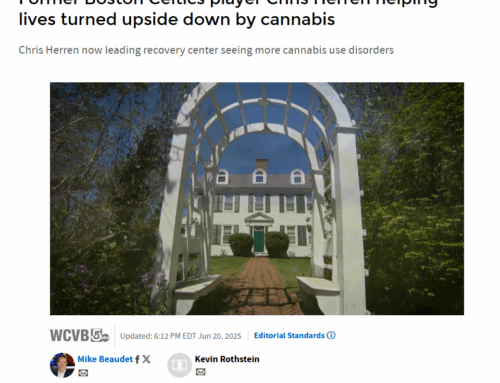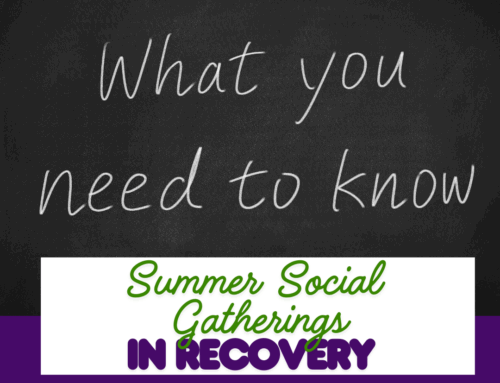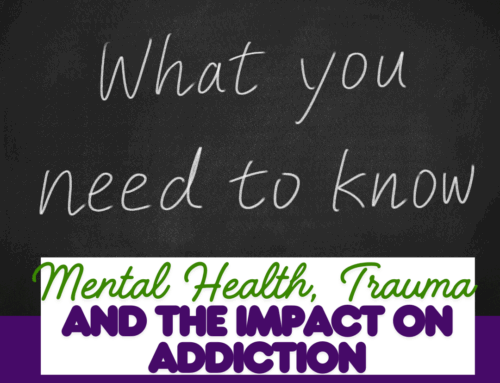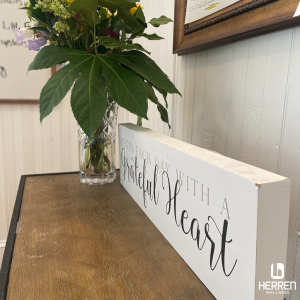
5 Ways Gratitude Can Help Recovery
It is said in the recovery community that “a grateful heart will not use substances.” However, what exactly is gratitude and how does it actually help us in our recovery and lives?
Gratitude is often likened to thankfulness, however these two ideas are quite different. The difference lies in intention. Joree Rose, LMFT says:
“Gratitude “is a quality of thankfulness. It’s something you intentionally choose to focus on and practice, which means you don’t just feel it; you do something about it.”
So what are the results when we do something about our gratitude? In this week’s blog we uncover the results of this important practice.
1. Improves Physical Health
A 2013 study published in the journal Personality and Individual Differences found more grateful people were more likely to report better physical health. The study concluded that those who practiced gratitude were more mindful of their overall health, so were more likely to exercise and seek help if something concerned them physically or mentally.
Further, Another study from the National Institutes of Health (NIH) analyzed blood flow across various regions of the brain while participants expressed feelings of gratitude and found that individuals who showed more gratitude experienced higher levels of activity in the hypothalamus, the part of the brain that controls major bodily functions such as eating, drinking, sleeping, your metabolism, and stress responses. (Source.)
A simple practice of gratitude is directly linked to better overall health, life experience, and also longevity.
2. Enhances Well Being and Emotional Health
The University of Berkeley conducted a study involving 300 adults, primarily college students seeking mental health counseling at their university. Before their first counseling session they were interviewed for the study and reported low mental health and high rates of anxiety/depression. The participants were separated into groups, with only one group instructed to write gratitude letters. The results found:
“Those who wrote gratitude letters reported significantly better mental health four weeks and 12 weeks after their writing exercise ended. This suggests that gratitude writing can be beneficial not just for healthy, well-adjusted individuals, but also for those who struggle with mental health concerns. In fact, it seems, practicing gratitude on top of receiving psychological counseling carries greater benefits than counseling alone, even when that gratitude practice is brief.”
Surprisingly, this study found that practicing gratitude coupled with mental health counseling in fact improved the work these individuals were doing with their licensed doctors versus those who participated in mental health appointments without a gratitude practice.
3. Increases Connection
Gratitude is shown to enhance positive social emotions while decreasing negative emotions towards others. A University of Kentucky study concluded:
Study participants who ranked higher on gratitude scales were less likely to retaliate against others, even when given negative feedback. They experienced more sensitivity and empathy toward other people and a decreased desire to seek revenge.(Source)
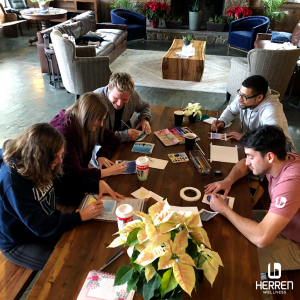
In recovery connection is essential, and in order to have healthy connections with others we must be rid of toxic emotions towards them. The practice of gratitude is not only felt by the individual, but also by those surrounding them.
4. Improves Self Esteem
In 12 step recovery programs it is said that “self esteem comes from doing esteem able acts.” However besides this, it is proven that practicing gratitude can lower materialistic traits and comparison with others. When we are grateful for what we have and our lives this promotes positive feelings and self-esteem.
A 2014 study published in the Journal of Applied Sport Psychology found that gratitude increased athlete’s self-esteem, which is an essential component to optimal performance. (Source)
Not only does gratitude improve self-esteem and help our relations with others and connections, it has the power to enhance our performance in our lives whether that be career, athletics, or tending to our families.
5. Helps You Sleep Better
An essential part of wellness is the quality of our sleep. It has been proven through studies that a gratitude practice eases stress in the brain and arousal before bedtime, allowing people to fall into REM sleep with more ease due to lower brain activity.
In a study of 401 people, 40 percent of whom had clinically impaired sleep, more grateful people reported falling asleep more quickly, sleeping longer, having better sleep quality, and staying awake more easily during the day. This study also found evidence that more grateful people sleep better because they have fewer negative thoughts and more positive ones at bedtime. (Source).

At Herren Wellness our life coaches work with guests to establish a gratitude practice to help them in their recovery journey. However, it is never too late to re-establish practicing gratitude to help recovery and overall well-being.
When you walk through the doors of Herren Wellness a sign hangs next to the daily schedule: “Begin each day with a grateful heart.” That is what we practice daily within our recovery community.
About Herren Wellness
When you come here, you are immediately connected with a thriving community of people at all stages of their recovery journey. We introduce healthy habits and routines centered around emotional, physical, and spiritual wellness that provide a solid foundation for rediscovering your interests, experiencing joy in sobriety, and building structure and routine.
We provide several alumni support communities, including a weekly recovery support group, monthly alumni meeting, and online alumni community you can access anytime. Your connection to Herren Wellness doesn’t end when your stay ends; we are there for you throughout your recovery journey.
If you, or a loved one, are looking for help, please call us at (844) 443-7736, email us at info@herrenwellness.com, or fill out a contact form. You are not alone.


